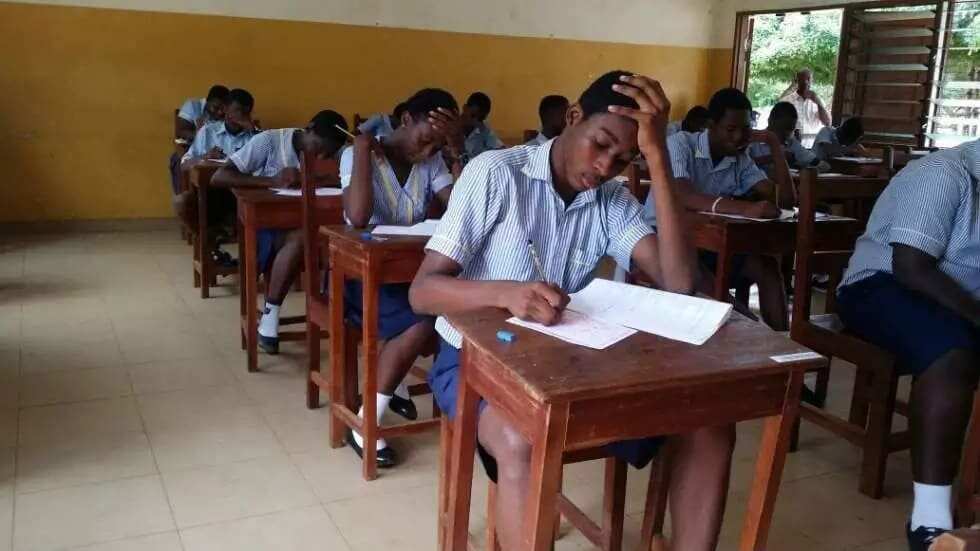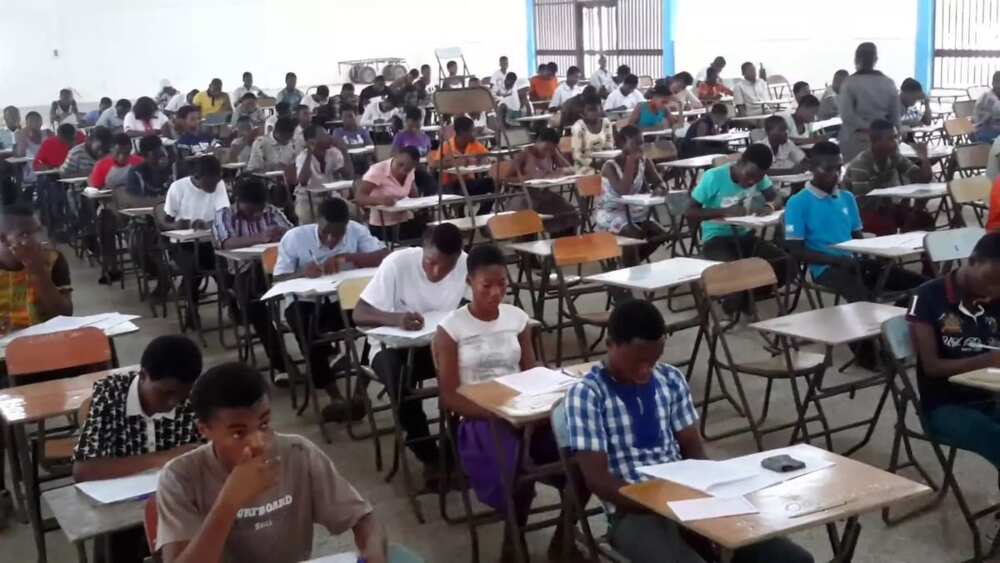BECE grading system: a comprehensive guide 2020
BECE is the main exam for junior high school education in Ghana and can even pave the way for a student to join technical institutes. Depending on their BECE marks and grades, the students can also join senior high school vocational institutes. As mentioned earlier, the Ghana Education Service oversees these tests through the Ministry of Education in June every year unless the tests are postponed or canceled.

BECE exams last for only a week and students are graded from Grade A+ to Grade F. However, for a student to sit for this exam, the school they represent must be registered and deemed eligible by the Ghana Education Service. In case a school has not registered, the Ghana Education Service gives them an opportunity to enroll from the start of October until late November.
Every student must choose the school they wish to join before the information is uploaded on the BECE website for processing. Schools are also supposed to present continuous assessment scores to the council in the form of compact disks for evaluation. BECE not only grades students but also give tutors a chance to add extra comments based on the student’s score. Below is the full BECE grading system as well as some of the comments the council can use to better a student’s marks and their grades for BECE.
- 90-100 Grade A+ (1) Highest
- 80-89 Grade A (2) Higher
- 70-79 Grade B+ (3) High
- 60-69 Grade B (4) High Average
- 55-60 Grade C+ (5) Average
- 50-54 Grade C (6) Low Average
- 40-49 Grade D+ (7) Low
- 35-39 Grade E (8) Lower
- 0-34 Grade F (9) Low
Aside from this grading system, tutors can also comment on the student’s performances using short phrases such as keep it up, has improved, could do better or buck up if they are failing. They can also comment on a student’s character such as respectful, humble, bully, approachable or event truant. Not to mention, they can also comment on their attitude as well as interests making BECE more than just a marking and grading system.
READ ALSO: University of Education Winneba Sandwich Fees 2020: Find out About the Fees Needed
Before enrolling in a technical institute or a secondary school, the teachers will already know the student's strengths. In some ways, marks and grades for BECE act as a cover letter if the tutor’s make use of the comment section. As such, your future teachers can know whether you are hardworking, dependable, talented in the arts or sports, or if you are the lazy type.
Basic education in Ghana
Ghana’s education reform program kicked off in 1987. All students are supposed to go through nine years in school and receive their primary education, which is free in the country for children aged 6-15 years. This education is free because the Ghanaian education commission saw it as a way to enable society to function efficiently and in cohesion despite the disparities in levels of education. Basic education is essential in Ghana considering it allows the technically gifted as well as the talented understand society better.
Not to mention, it also offers a chance for the academically gifted to join the best schools in the country with the help of their families or through scholarships. However, equipping them with skills at a young age in primary school is not enough considering other subjects can aid in their development but are only found in a secondary school.
As such, the Ghanaian government gives its youth a chance to study some of the subjects that can help them forge a career path and integrate with society. These subjects are found in the first half of junior secondary education and comprise of the following subjects. It is also worth noting that these subjects are what is referred to as the Basic Education Certificate Examination. They include;
- Mathematics
- Integrated Science
- Agricultural Science
- Pre-Technical Skills such as technical drawing
- English
- Ghanaian Language and Culture
- French (Optional)
- Life Skills
- Moral/ Religious Education
- Music and Dance
- Physical Education
- Environmental Studies
As such, the kind of career most students pursue is dependent on marks and their grades in BECE. There were rising concerns in multiple institutions across Ghana regarding poor performance from students in their Criterion-Referenced Tests (CRT). Between 1992 and 1997, only 7% of all students were able to score 66 out of 100 in English at least. Not to mention, only 3% managed to score 55% in mathematics.
However, despite the poor performance in their primary education CRTs, most of the students performed normally when they sat for their BECE. Most educators, as well as senior secondary school heads from different parts of Ghana, noted that the marks attained by students receiving their basic information were not that different from those attained after sitting for BECE. The criticism was severe as it led to the formation of a committee.
In September 1999, the then director general of the Ghana Education Services (GES) appointed a committee to scrutinize BECE marks and their grades and weigh their validity. The findings were presented to the director general in April 2000 by the committee’s chairman, Prof. D. A. Akyeampong and showed that BECE has a lot to contribute to any students’ career path as well as the Ghanaian education system.
The old BECE grading system
The committee mentioned above headed by Akyeampong observed the stanine system, which is the process used in BECE grading and result processing. They improved this 9-scale process into a standardized grading system that is in use to this very day. Stanine is an acronym for standard nine since as shown earlier, the BECE system uses nine levels to evaluate a student’s performance.
Stanine grades are even easier to use seeing they can be computed and contributed to the abolishing of the common entrance examination required of each student in their early schooling years. Despite all the good things this grading system seems to provide, it also has its disadvantages. For starters, it is tough to compare candidates or assess a nationwide improvement.
Not to mention, it does not show rising or falling basic education level standards or any improvement regarding teaching methods or an improvement in the student’s comprehension qualities. As such, the old BECE system was replaced by a flexible 9-scale grading system that can reference to criterions to eliminate the two drawbacks mentioned above.
The new BECE grading system
BECE is Ghana’s best way of accessing a student’s achievements in school form both education and other activities. This national grading system not only serves as certification allowing thousands if not millions of students to further their studies or even start their businesses if they do not have the funds to proceed with their education.
BECE is vital in the selection of students eligible for higher education and even makes it easy for said students to join an institution of their liking given it lets them provide a variety of options. The nine-scale criterion grading system allows for grade descriptions, setting, as well as cut-off points. BECE marks and grades 2018 are derived from this scale and while updates might come in the near future, this scale looks better than BECE’s last option.

Just like many other education institutes around the globe, BECE has cancelled its examinations at least once. In 2015, there were reports that some papers had been leaked and were being spread all over Ghana using the WhatsApp messaging platform. The West African Examinations Council (WAEC) noticed the discrepancy and canceled these five subjects; English language 2, religious and moral education 2, social studies 2, mathematics 2, and integrated science.
The BECE exams for 2015 had started on June 15th and were scheduled to end on the 19th in the same week but were prematurely canceled by WAEC, who ordered the re-administration of the canceled tests on June the 29th and 30th 2015.
BECE marks and their grades are now reputable, and almost all institutions in Ghana have registered for these tests. Not to mention, even if some students are not lucky enough to pursue higher education, the knowledge instilled in preparation for these exams is enough to aid integration into society through businesses or other innovative means.
Source: YEN.com.gh







